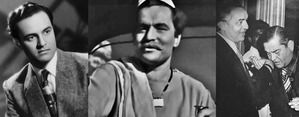How singer Mukesh ‘helped’ India win its first Test series in England

New Delhi, July 22. His time as one of the greatest playback singers in Hindi films is well known, lending his unforgettable voice to at least three generations of heroes. But Mukesh’s influence was also evident in a milestone outside the film world: the Indian cricket team’s first Test and series victory in England.
The Ajit Wadekar-led team drew the first two Tests of the 1971 series but won the third at the Oval in London with ease, courtesy of their legendary spin trio. When England came to bat for the second time, the Indians were trailing by 71 and sent their opponents packing for 101. Spinner BS Chandrasekhar ran wild, taking 6 for 38 and also getting a run-out. India scored an easy 173 to win.
And what did Chandrasekhar do before he cast his devastating spell? He indulged in his hobby and listened to Mukesh’s songs.
His teammates said that humming a Mukesh song around him usually helped inspire him. Years later, when Chandrasekhar was asked what attracted him to Mukesh, he cited the “depth of emotions” the singer evoked and the “impact” he had on the listener.
That was the magic of Mukesh Chand Mathur (1923-76), who was born on this day (22 July) in New Delhi.
Mukesh, as he was later called, was not a technically perfect singer and had his limitations, but he overcame them because of the sincerity and direct connection with the listener that he could evoke with his sonorous voice. And then there was the pathos that he could portray – and that would have made him an outstanding blues singer.
However, like many of his contemporaries, his path to success was not straight or easy. Music had been close to his heart since childhood – he even sat outside the room of one of his sisters where she was taking music lessons to internalize the lessons. His father had planned a professional career for him, but his heart was in the movies. An opportunity arose when the well-known actor and distant relative Motilal heard him singing during the wedding of one of his sisters in 1940 and offered to help him pursue a film career.
With his aristocratic looks, Mukesh actually started out as an actor and singer, as was fashionable at the time. However, his first two projects, “Nirdosh” (1941) alongside the petite Nalini Jaywant and “Aadab Arz” (1943) disappeared without a trace and he decided to concentrate on singing.
He got his first chance to sing for Motilal in “Pehli Nazar” (1945), and the song “Dil jalta hai” made him famous.
The performance was not easy. Mukesh failed to master the intricacies of the song during rehearsals, earning the wrath of composer Anil Biswas. The last straw was when he skipped a recording and ran off to a bar. Biswas tracked him down and tried to sober him up. But when he sobbed and told Biswas that he could not evoke the necessary pain, the composer slapped him and said that should be enough of an insult. And it worked.
However, Mukesh sang it in the style of his favourite singer KL Saigal, and there is a story that when a confused Saigal listened to the record, he remarked that he could not remember ever having sung this song.
Mukesh could have ended up as another Saigal clone, but Biswas dissuaded him from his fixation by telling him that there is only one Saigal and there should be only one Mukesh. Music composer Naushad Ali was also instrumental in this, while also curbing his alcohol addiction and asking him if, after becoming equal to Saigal in singing, he was now trying to surpass his idol in drinking.
While Naushad Mukesh filled in for Dilip Kumar in his early days, for example in ‘Gaye ja geet milan ke’ (‘Mela’, 1948), he became known as the voice of Raj Kapoor from ‘Awaara Hoon’ (‘Awaara’, 1951) onwards – although he had one song each in ‘Aag’ (1948) and ‘Barsaat’ (1949), and continued up to ‘Jaane kahan gaye woh din’ (‘Mera Naam Joker’, 1970).
Raj Kapoor called him his “voice” and “soul”, and while there is no doubt that most of Mukesh’s most famous songs were for the showman, both in RK films and outside, he was equally effective for Dev Anand, Shammi Kapoor, Shashi Kapoor, Feroz Khan, Dharmendra, Vinod Khanna, Sanjeev Kumar and many others.
Take “Zindagi khwab hai” (“Jagte Raho”, 1956) for Motilal, “Yeh mera diwanapan hai” (“Yahudi”, 1958) for Dilip Kumar, “Hum to tere aashiq hain” (“Farz”, 1967) for Jeetendra, “Sawan ka mahina” (“Milan”, 1968) for Sunil Dutt, “Ek pyar ka nagma hain” (“Shor”, 1973) for Manoj Kumar, “Jis gali mein teri ghar” (“Kati Patang”, 1970 ) for Rajesh Khanna, “Kai baar yuhi dekha hai” (“Rajnigandha”, 1974) for Amol Palekar and “Main pal do pal ka shayar hoon” (“Kabhi Kabhie”, 1977) for Amitabh Bachchan.
Disclaimer: This post has been auto-published from an agency feed without any modifications to the text and has not been reviewed by an editor.



